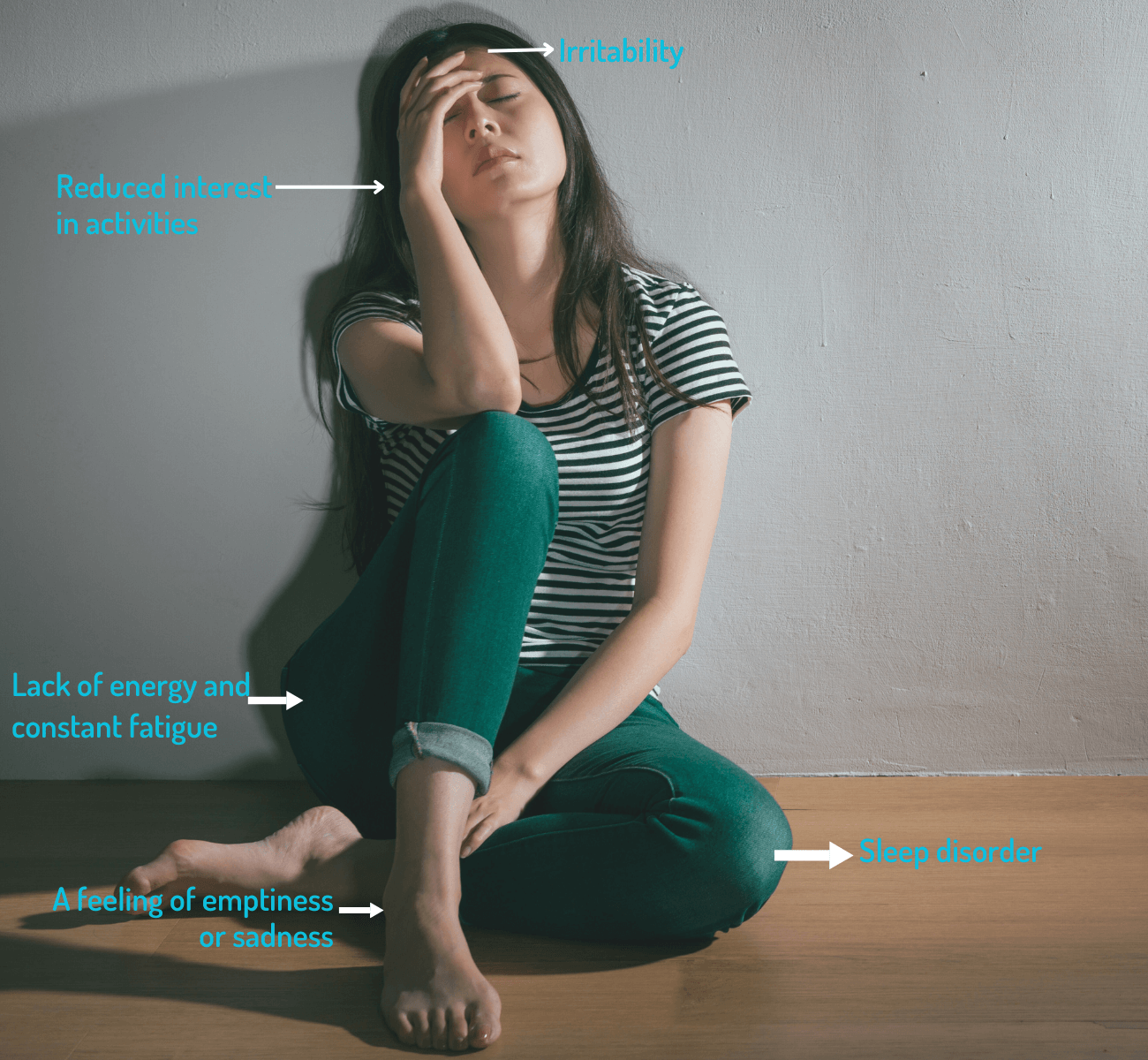For me, depression is an unpleasant and disturbing experience. When I’m feeling depressed, I struggle to accomplish even the simplest tasks because I don’t feel like myself.
In researching for my thesis on depression, I formulated the following thesis statement: Understanding depression as a complex mental health issue is essential for fostering empathy, enhancing treatment, and promoting mental well-being within society. Depression impacts millions of people globally, affecting individuals from all demographic groups.
Coping with depression is an essential addition to the broader conversation about mental health. Articles addressing this topic frequently include prevention and self-care strategies that can positively influence readers’ well-being. Discussing depression encourages the pursuit of effective treatment options, equipping individuals with knowledge about how to seek help and support themselves. This underscores the significance of engaging with articles on this crucial subject.

What Is a Good Thesis Statement About Depression?
Doctors diagnose depression as a complex mental disorder influenced by genetic, environmental, and psychological factors. It affects more than 264 million people worldwide. People experience persistent sadness and lack of interest or pleasure in activities. Social networks and economic instability impact depression.
Several modern examples illustrate this point:
– Depression rates have sharply increased during and after the COVID-19 pandemic.
– There is growing attention to depression in workplace mental health policies.
– Young people are experiencing higher rates of depression, mainly due to the influence of social media.
– New treatments have emerged, such as ketamine therapy and digital mental health tools.
Effective treatment for depression requires a multifaceted approach, which includes therapy, medication, and lifestyle changes to support those affected adequately.
Causes and symptoms of depression
Causes
Depression is a complex condition with no definitive cause. However, there are common factors that can contribute to its development.
Humiliation: Many people experience depression as a result of emotional or physical.
Insecurity or loneliness: Many people struggle with depression due to social and family insecurity. Additionally, many individuals experience depression from a lack of connection or conflicts with parents, friends, or other close relationships.
Death grief: The loss of a loved one can significantly increase the risk of depression for many individuals.
Hereditary influence: When a family member is experiencing depression, it can have an impact on the other family members as well.
Major lifestyle changes: Many people experience depression during significant life changes. Common triggers include losing a job, retiring, facing a decrease in income, moving, getting divorced, or even remarrying.
Side effects of any significant disease: When a person experiences a serious illness, they may also struggle with depression.
Effects of drugs:Some individuals may experience depression as a side effect of certain medications. For instance, medicines like isotretinoin, commonly prescribed for acne, and the antiviral drug interferon-alpha can contribute to depressive symptoms.
Additionally, depression can arise from various other factors, and its causes often differ from one person to another.
Symptoms & Signs
- Mostly hiding feelings.
- Not having either good or bad feelings.
- Intentionally choosing a hectic life.
- Getting angry easily.
- Unnecessarily risky behavior.
Thesis Statement On Teenage Depression
A combination of genetic predisposition, environmental stressors such as academic pressure, the influence of social media, and a lack of adequate mental health resources primarily causes depression in teens. The dramatic increase in depression rates among teens since 2012—a 63% increase, according to the CDC—highlights the significant impact of factors such as social media use, academic pressure, and family dynamics. One study found that 59% of teens have been victims of cyberbullying, which can worsen symptoms of depression. According to the National Institute of Mental Health, in 2021, approximately 3.7 million teens ages 12-17 experienced at least one major depressive episode, highlighting the urgency of addressing this issue in society.
What are seven indicators that confirm the disorder in the depression thesis statement?
This article outlines seven key indicators that signify the presence of depression as a mental health disorder. These indicators include emotional, cognitive, behavioral, and physical changes, illustrating the significant impact of depression on various aspects of an individual’s life.
1. Persistent Sadness or Irritability
One of the most common signs of depression is a persistent feeling of sadness or hopelessness that lasts for at least two weeks. People may also show signs of irritability or anger without any external cause, making it difficult to maintain relationships and manage daily activities.
2. Loss of Interest or Pleasure
A key indicator of depression is anhedonia, which occurs when an individual loses interest in activities that they previously enjoyed, such as hobbies, social interactions, or work-related tasks. This diminished pleasure can render everyday life feeling meaningless and unfulfilling.
3. Changes in Appetite or Weight
Significant weight changes, either loss or gain, along with a noticeable shift in appetite—such as overeating or loss of appetite—can indicate depression. These variations may be connected to altered eating habits driven by fluctuations in mood.
4. Fatigue or Loss of Energy
Individuals experiencing depression frequently report feeling physically exhausted, even after minimal effort. This ongoing fatigue and energy loss hinder their ability to participate in daily activities and manage personal responsibilities.
5. Difficulty Concentrating or Making Decisions
Depression can lead to cognitive difficulties such as problems with concentration, memory, and decision-making. This may manifest as a mental fog or an inability to focus on tasks.
6. Feelings of Worthlessness or Excessive Guilt
Individuals suffering from depression frequently have negative self-perceptions and may feel worthless or guilty for things beyond their control. These feelings of inadequacy or self-blame are pervasive.
7. Physical Symptoms without Clear Medical Cause
Depression can exhibit physical symptoms such as headaches, back pain, digestive issues, or other unexplained bodily discomfort. These symptoms often lack an identifiable medical origin and are believed to be psychosomatic.
The Problem Of Adolescent Depression
Depression is increasingly overwhelming teenagers during and after puberty, as highlighted in a study published by the medical journal “The Lancet.” The current generation experiences excessive anxiety and worry in various situations. This unwarranted anxiety often leads to unknown fears.
The Murdoch Children’s Research Institute in Melbourne, Australia, has been conducting a long-term survey on individuals aged 15 to 24. Their findings show that depression affects at least 75% of teenagers. This survey involved 1,239 teenagers and was reported in “The Lancet.”
Researcher Ellie Robson noted that the prevalence of excessive anxiety and worry during puberty stems from several factors. These include academic pressure, exam stress, heavy social media usage, fierce competition, unfulfilled expectations, family issues, and experiences of physical abuse.
The study also revealed that adolescent girls tend to experience depression more frequently than boys. This disparity is not only attributed to challenges in their personal lives but also to various physical and hormonal changes that can contribute to mood disorders. When depression becomes complex and persists over a long period, it is classified as “depressive disorder” in medical terminology. Such issues are also common among teenagers.
Interesting Thesis Statement about the Diagnosis and Treatment of Depression
Understanding mental health issues typically requires clinical interviews. Instead, a mental health professional must evaluate the patient’s symptoms and expressions.
In cases of mental depression, treatment can involve counseling or psychotherapy. However, if the depression is severe, the patient may lack the motivation to engage in psychotherapy, in which case medication may be necessary. Combining medication with psychotherapy often enhances the chances of improvement.
If a patient shows suicidal tendencies, it is crucial to administer urgent and effective treatment. In such situations, the involvement of the patient’s relatives can also be vital to the treatment process. In this situation, they may require hospitalization.
Thesis Statement about Stress and Depression
Stress and depression are complex issues that encompass physiological, psychological, and sociological aspects. They can manifest as acute (short-term) or chronic (long-term) conditions.
Stress is the body’s natural response to challenges or demands, which triggers the fight-or-flight response. This response releases hormones like cortisol and adrenaline. While short-term stress can be motivating and even beneficial, chronic stress can result in serious physical and mental health problems, including headaches, digestive issues, sleep disturbances, and a weakened immune system.
Bipolar Disorder Thesis Statements about Depression
Bipolar disorder is a mental illness characterized by significant changes in behavior. Individuals with this condition can experience extreme moods ranging from excessive excitement to profound depression, often triggered by seemingly trivial events. Both environmental and genetic factors can influence the severity and frequency of these episodes, which can persist for extended periods and make it challenging to manage everyday life.
Bipolar disorder consists of two primary types of episodes: manic episodes and depressive episodes.
Manic Episode: During a manic episode, the person experiences heightened excitement and emotional elevation, often feeling elated without apparent reason.
Depressive Episode: Conversely, in a depressive episode, the individual experiences deep sadness and tends to belittle themselves, resulting in a loss of self-confidence.
The term “episode” is used because each type of bipolar disorder can occur for a specific duration. A manic or depressive episode can last for several weeks to a few months before transitioning to the other type or returning to the previous one. This cyclical pattern is what defines the episodes of bipolar disorder.
